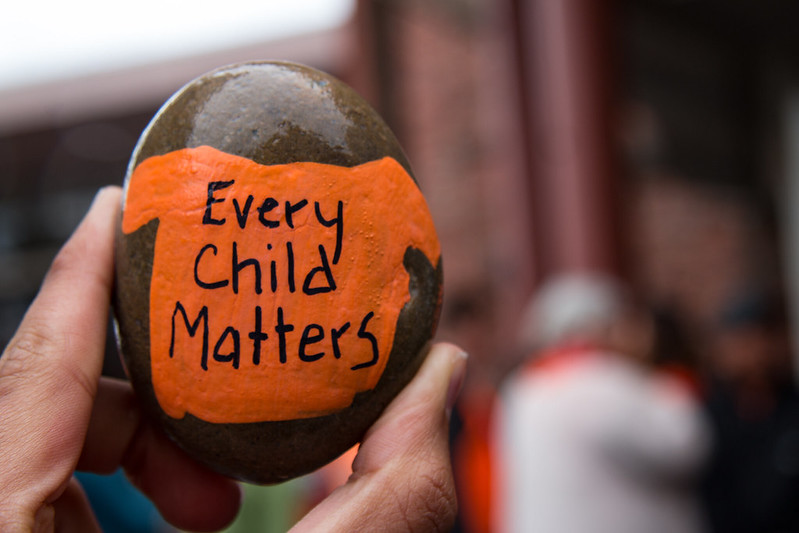Ecojustice has committed to the process of evolving into an organization that, through our actions and behaviours, can exist in reciprocal relationship with the many distinct Indigenous Peoples and Nations of the territories we know as Canada.
We recognize it is our responsibility, as a settler organization, to take these steps.
Ecojustice honours and celebrates the many Indigenous Peoples and Nations on whose traditional lands we work and live. We are an uninvited guest on these lands.
We acknowledge we can be on these lands because the Canadian state imposed a colonial system of laws to displace Indigenous Peoples, sever their relationships with their lands and waters, and extinguish their cultures, knowledge, and ways of being.
We celebrate that, despite state-sanctioned cultural genocide, Indigenous Peoples continue to organize, to rise, and to thrive in a profound act of resistance and resilience.
Ecojustice accepts that we must interrogate and unlearn the ways in which we, as a settler organization, perpetuate colonialism. This is a moral imperative.
We welcome the responsibility of contributing to the national project of reconciliation and responding to the Truth and Reconciliation Commission’s Calls to Action.
We affirm Indigenous sovereignty and self-determination .
Ecojustice affirms the sovereignty of Indigenous Peoples and Nations. We recognize and affirm Indigenous and treaty rights exist in Canada and endorse the United Nations Declaration on the Rights of Indigenous Peoples.
We acknowledge that Indigenous Peoples in Canada have — and never relinquished — the right to govern themselves according to their spiritual ways, cultures, languages, social and legal systems, political structures and inherent relationships with their lands and waters.
Ecojustice recognizes the Canadian state failed to uphold its treaty agreements and claimed exclusive sovereignty over land and resources that were not theirs to claim. This benefitted generations of settlers at the expense of those who have lived and protected the lands and waters since time immemorial.
We regret the Canadian settler system of laws and governments has — and continues — to perpetuate colonialism and racism against Indigenous Peoples.
Ecojustice recognizes we benefit from this system of laws and governments and rely on it to achieve our mission. We regret the instances in which Ecojustice perpetuated harm by disregarding Indigenous governance and jurisdiction in the name of conservation and strive to do better.
We commit to ensuring Ecojustice staff have an informed perspective on how this system of laws and governments disproportionally inflicts harm and trauma to Indigenous Peoples and Nations.
Ecojustice recognizes we must collaborate with a wider range of partners and increase Indigenous representation among staff to better support “Two Eyed Seeing” and reframe settler notions of conservation and environmentalism.
We further acknowledge that a diversity of Indigenous laws, legal traditions, and justice systems pre-date the Canadian settler system of laws and governments. We support their recognition, implementation, and integration into a legal system that reflects the plurality of settler and Indigenous laws and legal traditions.
We are committed to working with our Indigenous clients, partners, and allies in reciprocal relationship.
Ecojustice understands we must develop greater cultural competence and cultural safety to be in respectful, reciprocal relationship with Indigenous Peoples and Nations.
We commit to improving our relations with Indigenous clients, partners, and allies. We acknowledge that doing so will require us to unlearn our biases and interrogate our assumptions.
Ecojustice will center Indigenous perspectives, interests, and voices in all work done for or with Indigenous clients and partners. We will not presume to speak for or act on behalf of Indigenous communities without their free, prior, and informed consent.
Finally, Ecojustice recognizes that while the process of reconciliation will take many hands over many generations, we begin the work of repairing our relationships with Indigenous Peoples and Nations now.

